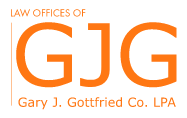Pension Rights
On December 20, 2012, The Ohio Legislature passed Ohio House Bill 479. Ohio House Bill 479 which becomes effective in March 2013 amends Ohio Revised Code 2329.66 ( A)(10)(a) in certain areas which have an impact on the practice of domestic relations in Ohio. I have reprinted below the sections of Ohio House Bill 479/Revised Code 2329.66 and I have highlighted the relevant and important portions of the new bill. The important portions of the bill for domestic relations practitioners is a) the exemption for a residence has been raised to $ 125,000.00 ( R.C. 2329.66 (b) and that retirement plans transferred by way of a Qualified Domestic Relations Order are exempt ( 2329.66 (f).
Ohio Revised Code 2329.66 (A) Every person who is domiciled in this state may hold property exempt from execution, garnishment, attachment, or sale to satisfy a judgment or order as follows:
(b) In the case of all other judgments and orders, the person’s interest, not to exceed twenty-one hundred twenty-five thousand two hundred dollars, in one parcel or item of real or personal property that the person or a dependent of the person uses as a residence.
(c) For purposes of divisions (A)(1)(a) and (b) of this section, “parcel” means a tract of real property as identified on the records of the auditor of the county in which the real property is located.
(10)(a) Except in cases in which the person was convicted of or pleaded guilty to a violation of section 2921.41 of the Revised Code and in which an order for the withholding of restitution from payments was issued under division (C)(2)(b) of that section, in cases in which an order for withholding was issued under section 2907.15 of the Revised Code, in cases in which an order for forfeiture was issued under division (A) or (B) of section 2929.192 of the Revised Code, and in cases in which an order was issued under section 2929.193 of the Revised Code, and only to the extent provided in the order, and except as provided in sections 3105.171, 3105.63, 3119.80, 3119.81, 3121.02, 3121.03, and 3123.06 of the Revised Code, the person’s right rights to or interests in a pension, benefit, annuity, retirement allowance, or accumulated contributions, the person’s right rights to or interests in a participant account in any deferred compensation program offered by the Ohio public employees deferred compensation board, a government unit, or a municipal corporation, or the person’s other accrued or accruing rights or interests, as exempted by section 145.56, 146.13, 148.09, 742.47, 3307.41, 3309.66, or 5505.22 of the Revised Code, and the person’s right rights to or interests in benefits from the Ohio public safety officers death benefit fund;
(b) Except as provided in sections 3119.80, 3119.81, 3121.02, 3121.03, and 3123.06 of the Revised Code, the person’s right rights to receive or interests in receiving a payment or other benefits under any pension, annuity, or similar plan or contract, not including a payment or benefit from a stock bonus or profit-sharing plan or a payment included in division (A)(6)(b) or (10)(a) of this section, on account of illness, disability, death, age, or length of service, to the extent reasonably necessary for the support of the person and any of the person’s dependents, except if all the following apply:
(i) The plan or contract was established by or under the auspices of an insider that employed the person at the time the person’s rights or interests under the plan or contract arose.
(ii) The payment is on account of age or length of service.
(iii) The plan or contract is not qualified under the “Internal Revenue Code of 1986,” 100 Stat. 2085, 26 U.S.C. 1, as amended.
(c) Except for any portion of the assets that were deposited for the purpose of evading the payment of any debt and except as provided in sections 3119.80, 3119.81, 3121.02, 3121.03, and 3123.06 of the Revised Code, the person’s right rights or interests in the assets held in, or to directly or indirectly receive any payment or benefit under, any individual retirement account, individual retirement annuity, “Roth IRA,” “529 plan,” or education individual retirement account that provides payments or benefits by reason of illness, disability, death, retirement, or age or provides payments or benefits for purposes of education, to the extent that the assets, payments, or benefits described in division (A)(10)(c) of this section are attributable to or derived from any of the following or from any earnings, dividends, interest, appreciation, or gains on any of the following:
(i) Contributions of the person that were less than or equal to the applicable limits on deductible contributions to an individual retirement account or individual retirement annuity in the year that the contributions were made, whether or not the person was eligible to deduct the contributions on the person’s federal tax return for the year in which the contributions were made;
(ii) Contributions of the person that were less than or equal to the applicable limits on contributions to a Roth IRA or education individual retirement account in the year that the contributions were made;
(iii) Contributions of the person that are within the applicable limits on rollover contributions under subsections 219, 402(c), 403(a)(4), 403(b)(8), 408(b), 408(d)(3), 408A(c)(3)(B), 408A(d)(3), and 530(d)(5) of the “Internal Revenue Code of 1986,” 100 Stat. 2085, 26 U.S.C.A. 1, as amended;
(iv) Contributions by any person into any plan, fund, or account that is formed, created, or administered pursuant to, or is otherwise subject to, section 529 of the “Internal Revenue Code of 1986,” 100 Stat. 2085, 26 U.S.C. 1, as amended.
(d) Except for any portion of the assets that were deposited for the purpose of evading the payment of any debt and except as provided in sections 3119.80, 3119.81, 3121.02, 3121.03, and 3123.06 of the Revised Code, the person’s right rights or interests in the assets held in, or to receive any payment under, any Keogh or “H.R. 10” plan that provides benefits by reason of illness, disability, death, retirement, or age, to the extent reasonably necessary for the support of the person and any of the person’s dependents.
(e) The person’s rights to or interests in any assets held in, or to directly or indirectly receive any payment or benefit under, any individual retirement account, individual retirement annuity, “Roth IRA,” “529 plan,” or education individual retirement account that a decedent, upon or by reason of the decedent’s death, directly or indirectly left to or for the benefit of the person, either outright or in trust or otherwise, including, but not limited to, any of those rights or interests in assets or to receive payments or benefits that were transferred, conveyed, or otherwise transmitted by the decedent by means of a will, trust, exercise of a power of appointment, beneficiary designation, transfer or payment on death designation, or any other method or procedure.
(f) The exemptions under divisions (A)(10)(a) to (e) of this section also shall apply or otherwise be available to an alternate payee under a qualified domestic relations order (QDRO) or other similar court order.
(g) A person’s interest in any plan, program, instrument, or device described in divisions (A)(10)(a) to (e) of this section shall be considered an exempt interest even if the plan, program, instrument, or device in question, due to an error made in good faith, failed to satisfy any criteria applicable to that plan, program, instrument, or device under the “Internal Revenue Code of 1986,” 100 Stat. 2085, 26 U.S.C. 1, as amended.




